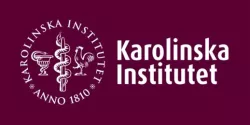Spotlight on Research: A new way to treat blindness using stem cells
The Kvanta/Lanner team are investigating whether replacing dying cells can treat ‘dry’ age-related macular degeneration.
What is the question you are trying to answer?
Age-related macular degeneration is a common eye condition which affects vision in the elderly. When the RPE cells stop working correctly, the light-sensing photoreceptor cells lose their support and die in a slow, progressive manner, in the central part of the retina called the macula. This ‘black spot’ makes it difficult to see fine details, read, recognise faces, and drive. To stop the spread of the blind spot, the Kvanta/Lanner team are investigating whether lab-grown cells can replace the dying cells to improve visual function.
Why are you investigating this question?
Pre-clinical animal studies with CellThRPE1 have indicated that this approach could be effective in slowing the disease. At the time of writing (August 2024), the team is getting ready to file a clinical trial application with the Swedish MPA. We hope to start a first-in-human phase I clinical trial to assess the safety of this stem cell therapy in 2025.
What will the next steps be?
Pre-clinical animal studies with CellThRPE1 have indicated that this approach could be effective in slowing the disease. At the time of writing (August 2024), the team is getting ready to file a clinical trial application with the Swedish MPA. We hope to start a first-in-human phase I clinical trial to assess the safety of this stem cell therapy in 2025.
What impact do you hope for this to have in your field?
‘Dry’ AMD is currently incurable and is one of the leading causes of vision loss in the elderly. Recent pharmacological advances have introduced hope, however, while slowing disease progression in some patients, they require monthly injections into the eye. If cell therapy proves a successful method for replacing lost cells and supporting the surviving cells, this could allow people with AMD to retain their sight and independence for longer.
